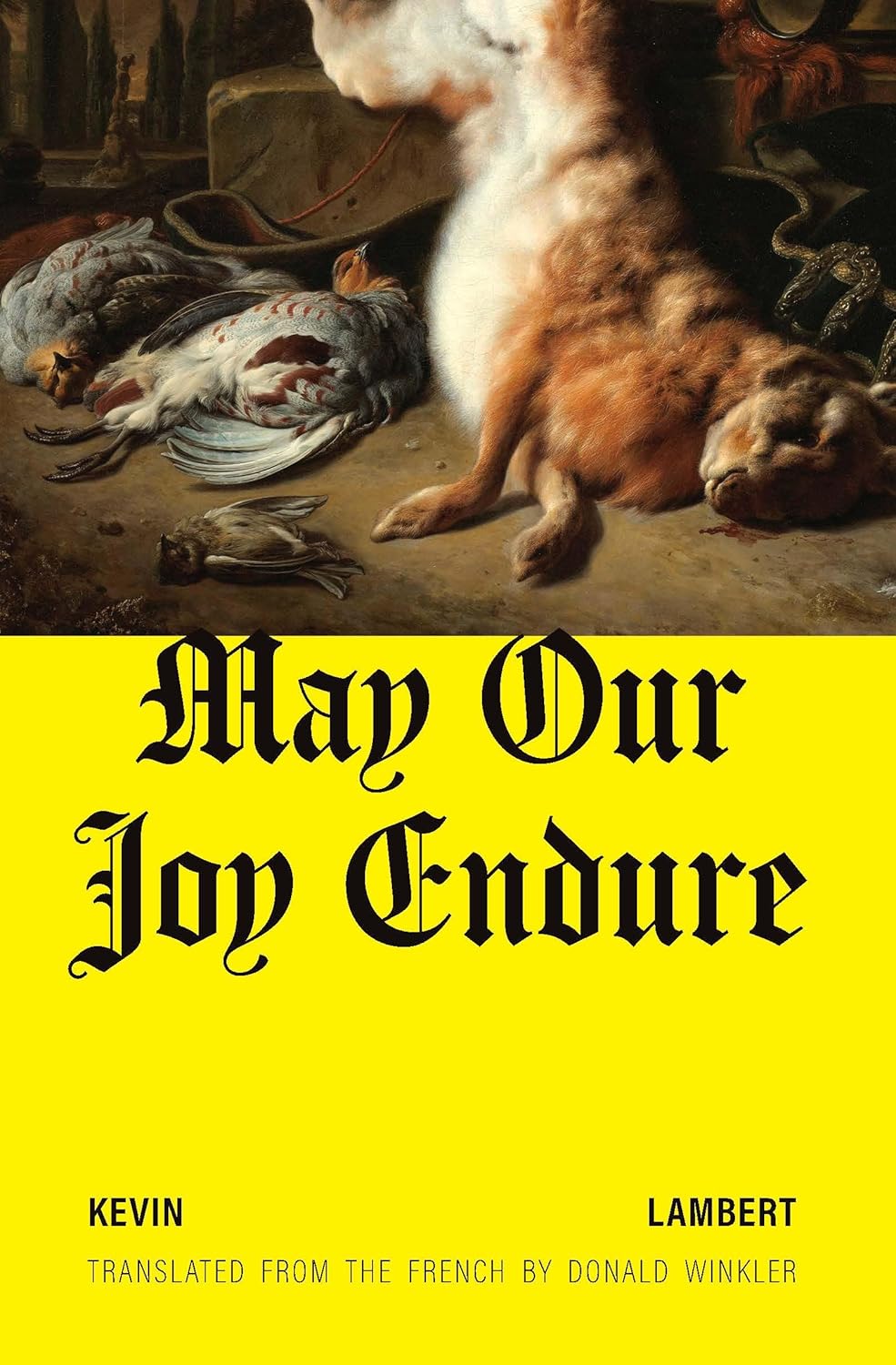Kev Lambert
Translated by Donald Winkler
Biblioasis ($18.95)
The lifeless furred and feathered bodies and heavy Gothic font on the cover of Québécois writer Kev Lambert’s third novel, May Our Joy Endure, prepare readers for a tragic story, and we get one, of sorts. From its opening pages, the novel offers a trenchant social critique in a chaotic unspooling of words—Lambert’s prose is relentless as perspectives shift rapidly with scant stops for respite.
While the telling feels urgent, the novel’s construction is impeccable. The middle segment of the three-part narrative belongs to Céline Wachowski, a world-renowned architect and host of her own Netflix reality series, Old House, New House, just when her studio is breaking ground on a complex for the corporate behemoth “Webuy.” Titled “Time Passes”—a deft foreshadowing of Céline’s obsession with Proust—this center section is the most conventionally styled of the narrative; it is bookended by untitled segments written in more experimental prose. To top it all off, the novel’s final sentence echoes its title, creating a loop to snare the contents between them: an exacting design, not unlike the figure-eight-shaped blueprint Céline has created for Webuy.
Céline’s career began with residential structures in the ′90s, and as her portfolio swelled with celebrities’ homes and important buildings across the world’s capitals, her accomplishments as a woman in a male-dominated profession intensified her star-status. With due pride, she has brought the Webuy complex to her native Montréal, but an article in The New Yorker scrutinizes Céline’s commitment to “ethical architecture” and accusations about her surface and spiral. Caught in the firestorm of criticism, Céline laments that a “climate so injurious is only possible in Quebec where a plurality of discourses cannot possibly coexist,” recognizing it as “a vestigial heritage of the Yes or No referendum debates” in a “powerless and panicked” province.
Most importantly, however, the novel’s focus is on the frameworks that gain invisibility as structures take their true shapes in the world. Foundationally, readers can explore concepts like neoliberalism and gentrification; in the basement, injury and trauma lurk. Various windows reveal not only literary influences—James Baldwin and Nelly Arcan, Virginie Despentes and Virginia Woolf, and most significantly, Québécois author Marie-Claire Blais—but also intertextual relationships with Lambert’s previous books: Their first novel, You Will Love What You Have Killed (Biblioasis, 2020), explores the thin line between love and hate as well, and their second, Querelle of Roberval (Biblioasis, 2022), dissects power structures in the context of queer sexuality and labor politics.
As May Our Joy Endure suspends its heroine from a hook so that readers can examine the shell of what remains, the authorial voice seems to conclude that we’ve all had a hand in stringing her up, and that any one of us could be similarly exposed and flayed: “we can be as hypocritical as those we constantly reproach for their own hypocrisies.” Like the best social novels, Lambert’s holds up the mirror: We are not simply witnesses to the story, we are participants.
Click below to purchase this book through Bookshop and support your local independent bookstore:
Rain Taxi Online Edition Spring 2025 | © Rain Taxi, Inc. 2025

